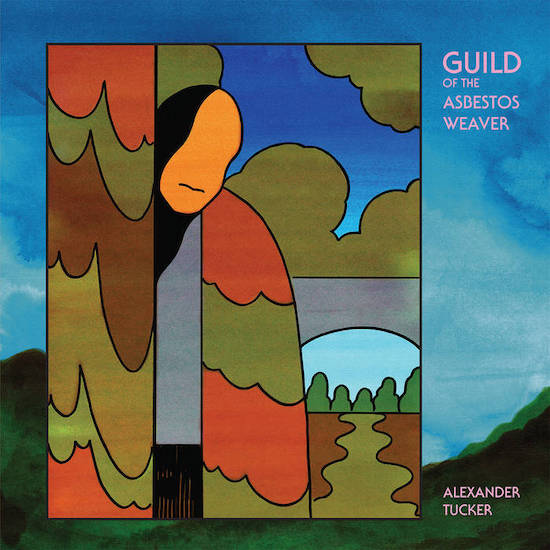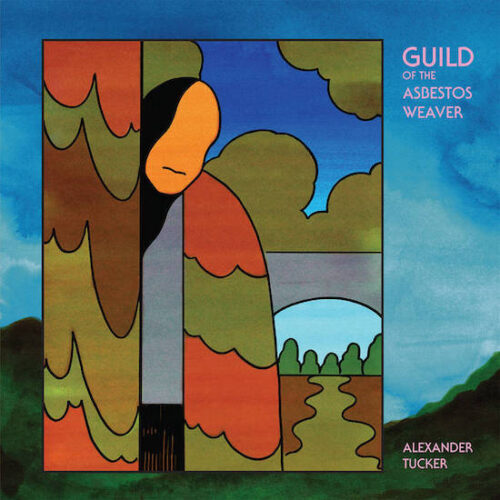It’s hard to listen to Alexander Tucker’s peculiar new album without Grumbling Fur’s most recent opus, Furfour, coming to mind. It’s his voice – whether multitracked as a solo artist or melded with Daniel O’Sullivan’s as part of Grumbling Fur. Tucker is blessed with a singular croon, one that manages the remarkable feat of being both deadpan and laced with emotion. Equally, there is a clear musical DNA in common between Furfour and Guild of the Asbestos Weaver that sets Tucker more clearly in the continuum of weird British electronica than O’Sullivan’s recent albums.
From the onset of ‘Energy Alphas’, this lineage makes itself clear as shuffling drum machine beats are surrounded by increasingly dense clouds of synth melodies and lumbering bass surges. Tucker’s voice emerges in exquisite multitracked harmonies like a strange, ghostly one-man version of Crosby, Stills and Nash on their first album. The lyrics are typical Tucker, opaque and oblique with lines like “Climbing up the mantel piece/drawing on the ground in certain ways” managing to baffle and evoke in equal measure. The singer has said that he wanted to draw on multiple sci-fi and cosmic horror influences and this imagery is vivid throughout as he conjures up “lives of distant star laid isles” and “microscopic spores” on ‘Artificial Origin’ and “claw marks on buildings” on ‘Precog’. The former is a robust nine-minute stomp featuring sweeping synths and monolithic beats while the latter showcases Tucker’s musical dexterity as swirls of guitar, electronics, and drums coalesce into a dense, droning whole.
Guild of the Asbestos Weaver also highlights Alexander Tucker’s links to musical vocabularies past and present. Some of the more lavish arrangements across the album evoke the folk-tinged prog of the Canterbury scene and early Genesis, updated with contemporary software and electronics. But with a line like “digging holes in the shores of coastlines”, again on ‘Precog’, he also echoes the lyrical flourishes of two of Britain’s more eccentric and ambiguous song-crafters: Brian Eno and David Sylvian. Indeed, Tucker’s love of Frippertronic-esque guitar (which kind of crops up again on ‘Montag’) was a highlight of Furfour. Meanwhile, his voice carries the otherworldly vibe of Sylvian’s, somehow melded with the neutral tone of Eno on Here Come the Warm Jets. These diverse strands, both in terms of lyrics and influences are kept together by Tucker’s musical mastery, his sense of both melody and atmosphere shining brightly.
If there’s one weak point on Guild of the Asbestos Weaver, it comes in the form of the lengthy closer ‘Cryonic’. Although it is initially a very evocative piece with Tucker sighing the word “cryonic” over and over above a hypnotic guitar and string drone, a certain lack of development across the track means it somewhat outstays its welcome – as lovely as it is. But that’s a small quibble to lay at the door of an album that is constantly surprising, occasionally unsettling, frequently beautiful and always mysterious.



